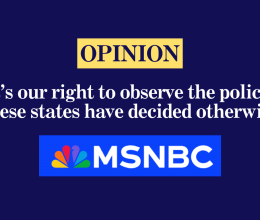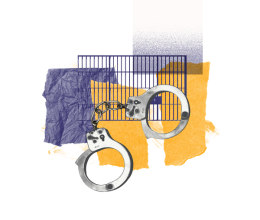NEW ORLEANS – As many Louisiana jails curb in-person visitation to combat the spread of COVID-19, the American Civil Liberties Union of Louisiana is calling on sheriffs to create free, secure, unmonitored phone lines to ensure people continue to have constitutionally-required access to counsel and the courts. The organization is also calling for sheriffs to provide handwashing and cleaning supplies free of cost to ensure jailed individuals can take the necessary steps to prevent the spread of COVID-19.
“Parish jails have a solemn obligation to protect the health and the constitutional rights of the people in their custody, as well as their staff,” said Alanah Odoms Hebert, ACLU of Louisiana executive director. “We’ll be watching closely to ensure that people detained in parish jails retain the right to counsel, as well as adequate access to the hygiene supplies necessary to keep themselves – and those around them – safe from this deadly disease.”
Throughout the crisis, the ACLU of Louisiana has been communicating with state and local officials about protecting the health of people involved in the criminal legal system. In addition to urging prisons and jails to comply with CDC guidelines and educate people in custody and corrections staff, the ACLU of Louisiana has called for:
- Honoring the deadlines for charging and arraigning arrestees provided by Article 701 of the Code of Criminal Procedure;
- Instituting a presumption of release on recognizance and, when a statute prohibits release on recognizance, fixing only nominal bail. People should be held in jail only if there is clear evidence that they pose an imminent danger to a person;
- Lifting probation and parole holds for technical violations, and ending such holds on people until further notice;
- Releasing high-risk and medically-frail adults and children from prison and juvenile facilities;
- Releasing individuals from pretrial detention who do not pose a risk to the community;
- Offering free access to hygiene supplies such as soap, hand sanitizer and other supplies;
- Planning for the screening and testing of incarcerated people in custody;
- Ending co-pays for health services in prison facilities;
- Waiving fees for phone and videoconference calls to preserve incarcerated people’s ability to communicate with friends and family;
- Avoiding lockdowns, which inflict substantial, serious mental harm on incarcerated populations;
- Extending good-time credit by issuing an emergency, 90-day, good-time credit to allow the release of anyone within 90 days of going home;
- Signing clemency petitions that are pending review and approval;
- Reducing jail admissions by reclassifying misdemeanor offenses that do not threaten public safety into non-jailable offenses, using citations instead of arrests for all crimes that do not involve violence, and diverting as many people as possible to community-based mental health and substance abuse treatment; and
- Releasing juveniles who pose no imminent and substantial danger to the community.






